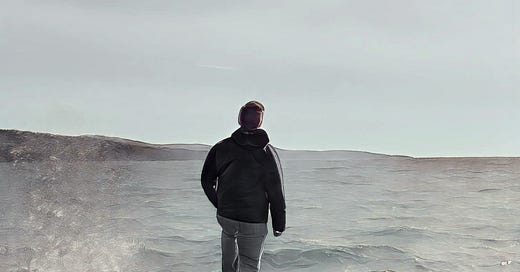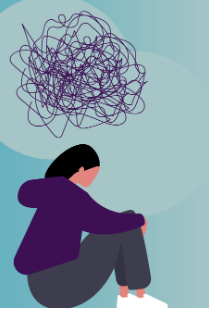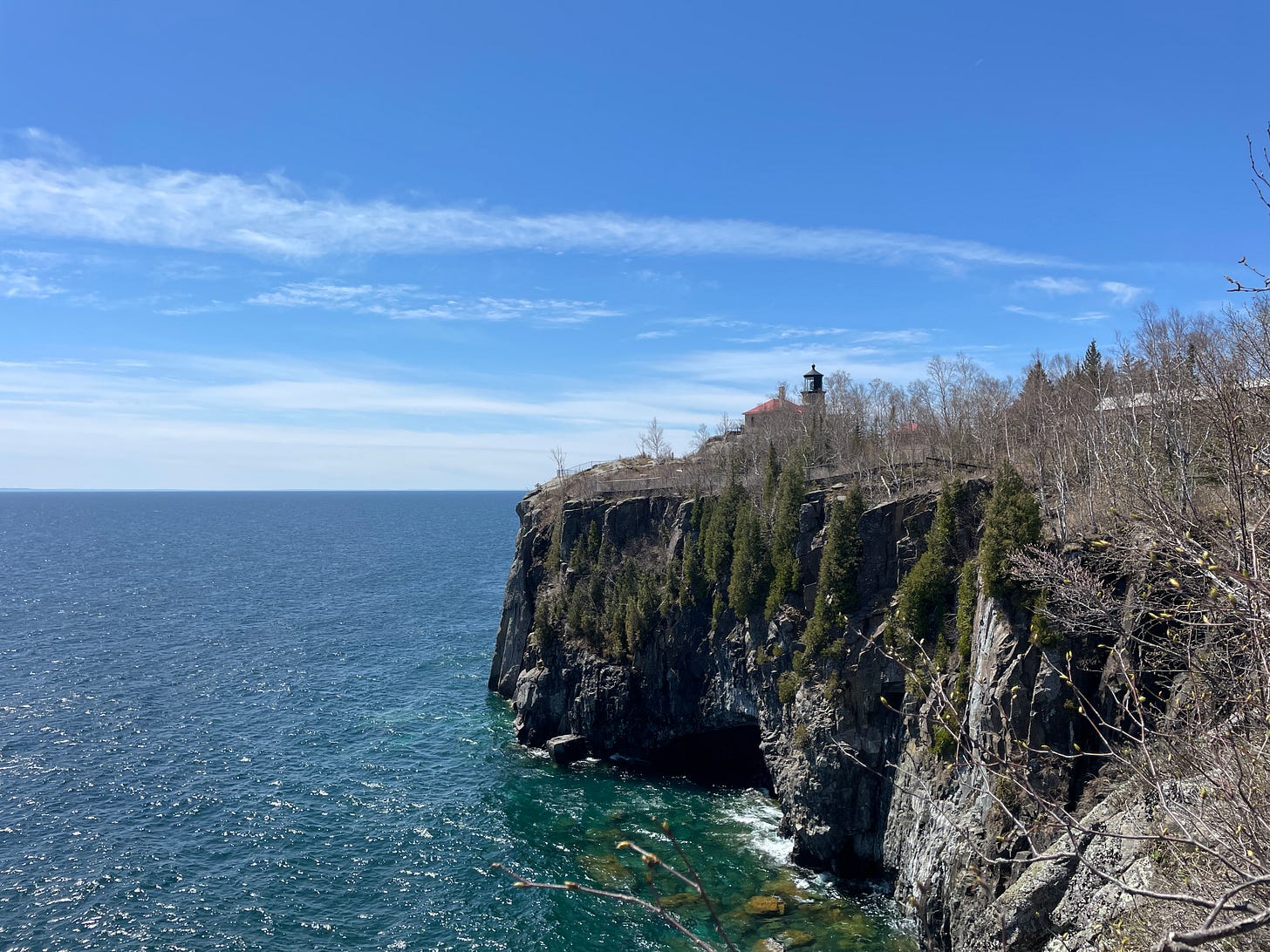Your Anxiety Needs an Adventure
Humans have taken voyages and grand expeditions for eons, yet today we are stagnant. Anxiety flourishes because of our idle nature. Take back your health. Seek your next adventure.
A driving theme of human history is the call to adventure. Many of our monumental works of literature (even monuments themselves) attempt to capture this very spirit on either marble or parchment. From the Odyssey to Don Quixote, and The Lord of the Rings, we are commanded to scribble down and illustrate the campaigns of great heroes, whether the are victorious or meet their fatal end.
Even our bodies respond to stories in a positive manner. Research has found storytelling leads to increases in oxytocin and positive emotion while also decreasing cortisol (stress hormone) and pain responses. No wonder these great tales of adventure have persisted through the ages and we still read centuries old tales; they make us feel good.
The actual adventure process does just that for us, and more. Take the benefits of storytelling and multiply them by ten. Oxytocin, dopamine, and serotonin production goes into overdrive when we begin a new quest. Vital brain activation, neural growth, and cognitive resilience flourish when we begin a new journey. Physical exercise, commonly required on an adventure, is associated with gains in more ways than we could begin to appreciate. Most importantly, and the thing I believe will resonate with most living in the modern world, is the anti-anxiety effects taking an adventure has.
Now, some folks get anxious just thinking about going somewhere new; others might never embark on a major journey because their fear is so great. That right there is where the cure lies.
When we encounter anxiety, it is because we are not able to determine the task and if our resources are adequate to meet the demands being imposed on us. There is simply too much ambiguity, so our brain tells our body to raise the alarm and let the cortisol and catecholamines flow to equip us with the energy needed so we might defeat or escape from some danger. The issue with anxiety from an idea, or from general life circumstances is that often we are unable to change much at all and therefore can only freeze.
With a thought, or rather string of thoughts, it is plausible that we are unaware the thought is misaligned and causing the anxiety we are experiencing. This leads us to experience anxiety with unknown origin, thus leading us to a variety of cognitive biases and errors.
The error of false causality is common with anxiety, i.e., "this article is giving me anxiety". Our example object, the article you are currently reading, is not really causing the anxiety but the number of thoughts, new and old, can be overwhelming and leading to the ambiguity just mentioned. This may seem like a simple cutting out of the middle man, but when understanding a problem, assigning causality incorrectly can lead to incorrect solutions.
Limiting our options, getting ourselves unstuck and moving toward a single goal is one of the best methods of reducing anxiety. If you were to sit in a therapist's chair, if they are any good, would offer you some advice along those lines. I give that exact advice to my clients frequently, which usually takes place in the form of a new routine alongside increasing their levels of self-discipline. Limit the ambiguity you experience daily, command your life a bit more, and magically your anxiety subsides. So, how does adventure help the anxious person just as much, if not more?
When we go on an adventure, we are introducing ambiguous stimuli, no doubt. We traipse about the forest floor or up on a mountain where we are miles from civilization and also likely disconnected from other people as well. Behind every tree could be danger, something to eat us, a branch to crush us, or a pit to fall in. Yet, we encounter it still and often with excitement. Not only is there danger, but beauty and soul-filling wonder. This is what we look to encounter despite the potential threat to our lives; we voluntarily confront adversity with every step.
Adventures are not transactional, they are transformative. They take our schemas and expand them permanently, giving us a new lens to view the world with from that point on. Now, some trips are more transformative than others and not all journeys taken have a profound impact, that much is clear. Hiking around your town or in a familiar place is different than waltzing through the great cathedrals throughout Europe for the first time. It is the case that taking regular adventures, whether it is around your neighborhood, town, or even by your office can help expand your resilience and help you reduce your anxiety because your are continuing to assert your autonomy and defend yourself against the eternal recurrence.
On a recent trip to the North Shore of the Great Lake, Superior, I was able to enjoy an adventure for the first time in a while. Throughout the four day journey, my wife and I escaped from the cycle of daily life and enjoyed many, but certainly not all, of the attractions Northern Minnesota had to offer. It was not our drive there or the plans we had made that turned the trip from enjoyable to spectacular, but rather the way we approached each point along the way.
When attempting to bring the spirit of adventure forward, it is important to remember that spontaneity paired with novelty is what produces adventure, not merely a schedule of events. Have you ever been on a trip with a rigid itinerary and little room for error? I have and they are MISERABLE.
Routine at work is important, just as it is at home as I have pointed out. Discipline involves us carrying out that routine and working toward identified goals despite the actual desire not being present at all moments. These two modes of execution are critical to the strategy of life, especially if we hope to living a fulfilling life.
However, a successful strategy of life does not end with routine and discipline, but it also, among other things, must have adventure. Adventure is the vital to our lives because it involves both the production of and response to spontaneity. When we have hearts of adventure, we are ready to pounce on an opportunity and open to respond to trouble; all leading to us becoming more resilient and adaptive across all situations. The greatest feeling associated with adventure is the lightness that comes with the freedom of being no longer subject to the expectations of routine and discipline.
While we hiked around the forest, alongside waterfalls, and on the banks of Superior itself, we were sure to follow whatever path looked inspiring and leapt across rocks to experience a new vantage point. Escaping from the paths and trails allowed me to see the defined trail only as an option rather than the only way forward.
Taking this adventure reminded me of the micro-adventures I went out on last summer. At the time, my summer courses were in full-swing and it happened to be the heaviest course load over the entire program. I became exhausted quickly and tried to determine how I could avoid burnout since it was only the beginning of June. My solution was simple but yielded a bountiful harvest.
I went for a walk everyday in a different direction and left the paths when able. Living near good walking paths certainly helped, but I soon found other dirt trails on public land and became good friends with them. Even as more familiar paths near my home, I walked on the grass rather than on the concrete lane.
When the semester concluded, I was still full of energy rather than barely keeping my head above water. The small adventures were a time to refill my cup, spend time in thought, pray, and appreciate the works of God. Believe it or not, it is difficult to find spiritual or even meaningful connection when we are surrounded by gypsum walls, artificial light, and recirculated air.
Take an adventure, big or small. Shed anxiety by asserting your command over your environment and knowing you have the capacity to overcome obstacles. Expand what you believe by expanding what you see. Start to live your life by taking actual steps toward experiencing more of our world and what it has to offer.








